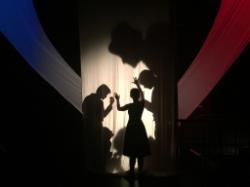Impact and Public Engagement
If you would like to get involved in any of our projects please contact us on tfti-enquiries@york.ac.uk or phone 01904 325237.
Telling the Bees - Dr Debbie Maxwell
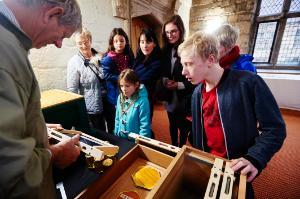
Brecht in Theory and Practice - Prof David Barnett
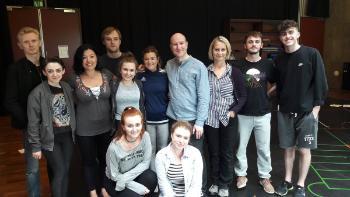
There is a perennial problem connecting Brecht’s theories of a politicized theatre with examples of concrete practice. Practice-as-research is at the heart of this project, implementing theoretical ideas to staging plays that are not written in the Brechtian tradition (e.g. Closer by Patrick Marber and The Crucible by Arthur Miller). The productions are richly documented on the website brechtinpractice.org.
Workshops with teachers and theatre-makers were also undertaken in the four nations of the United Kingdom to disseminate the research findings with a view to changing the ways Brecht is understood in education and in the profession. The workshops introduced participants to exercises (that are available for download on the website) that make concrete practice of Brecht's theoretical ideas.
Performing the Jewish Archive: Measuring the Impact of Theatrical Performance - Dr Lisa Peschel
Our goal was to measure the impact of two short plays performed for the £1.8 million AHRC-funded project ‘Performing the Jewish Archive’. Dr Lisa Peschel, her colleague Dr Alan Sikes from Louisiana State University, and Lisa’s students from the Department of Theatre, Film and Television, developed the plays from a preserved script – a comic work of Communist agit-prop – that was written and performed by Czech-Jewish prisoners in the World War II Jewish ghetto at Terezín (in German, Theresienstadt).
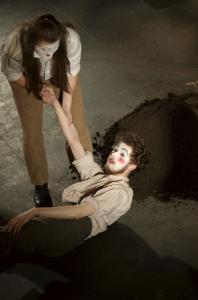
One play (the ‘textual’ version) was a straightforward performance of the script; the other play (the ‘co-textual’ version) preserved the structure of the script but cut some of text and replaced it with scenes about collective action, the value of labour, and having a political voice, in the ghetto and today. The plays were performed one after the other with a short intermission between them so that all audience members saw both plays.
Our aims for impact on the audience were to convey a sense of the Terezin prisoners as people with goals and dreams, not simply as victims, and an understanding of the reasons for comedy in the ghetto. Our aims for impact on the student performers were for them to gain an understanding of the history of the ghetto and of the prisoners’ political goals and how those goals might relate to their own experience.
Enhancing competitiveness in Virtual Reality Production - Wild Rover Productions
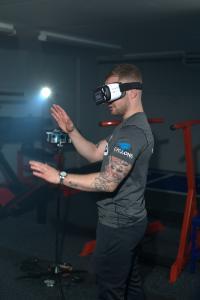
Cinematic Virtual Reality (CVR) is a rapidly developing new medium and the mechanisms for monetisation and markets for product are not yet mature. Accordingly, through the work undertaken in this partnership, impact may be obtained through the formal identification of routes to market and means to monetise CVR content, particularly in terms of new revenue generated by Wild Rover Productions.
Related to this is the immaturity and lack of standardisation within development and production strategies. It is hoped that impact may be achieved through the adoption of CVR methodologies developed by companies beyond Wild Rover Productions and possible recognition of these methods as ‘good practice’ or ‘industry norms’.
Digital Creativity Labs
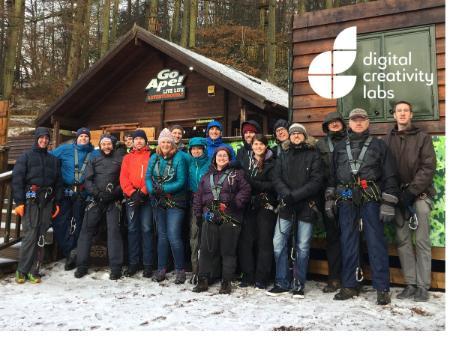
Digital Creativity Labs is an interdisciplinary laboratory, think tank and world centre of excellence for impact driven research in games, interactive media and the rich space where they converge.
Building on a major (£18 million) investment by three UK research councils, three universities, and over 80 collaborative partner organisations from industry, government and the third sector, we bring together over 30 world-class researchers across creative and scientific disciplines and take a multidisciplinary approach to tackling research challenges with a focus on real-world impact. We provide our partners with new perspectives, leading to highly innovative ideas, technologies and solutions.
We operate in a landscape of world-leading research hubs and funding initiatives, including the £12 million EPSRC Centre for Doctoral Training in Intelligent Games and Game Intelligence (IGGI).

